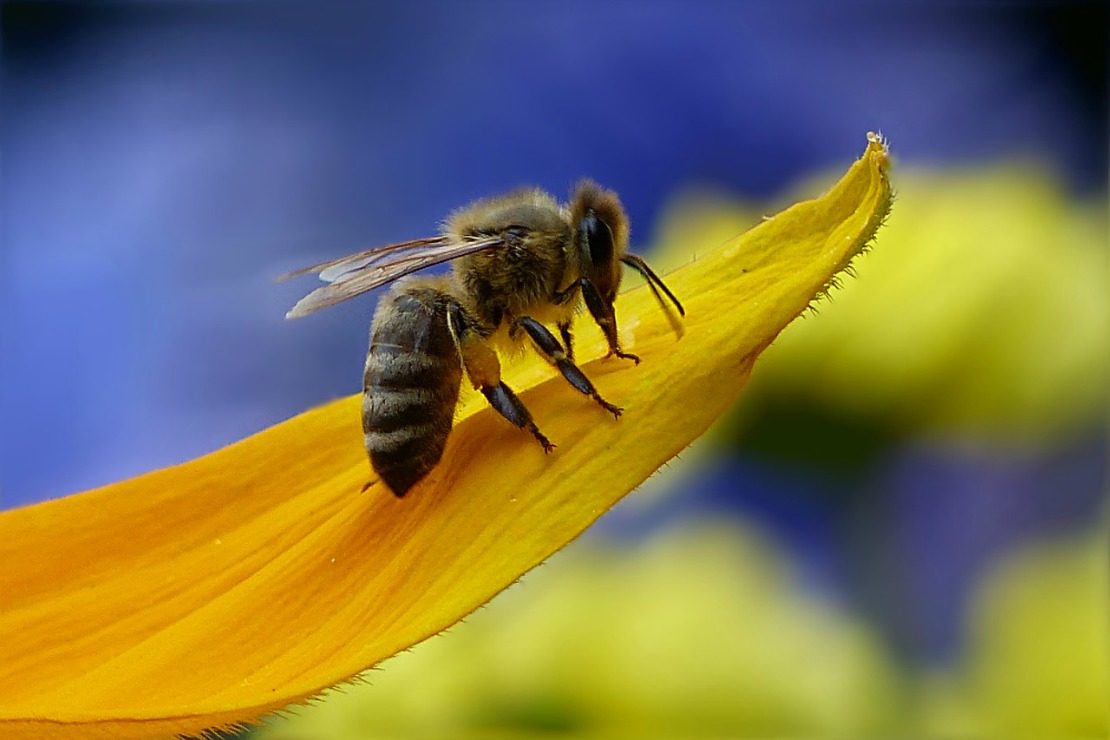
Plantain For Bee Stings
By Nina Katz – Herbalist
After gathering oodles of wild amaranth, purslane, lamb’s quarters, and gallant weed (galinsoga), Barbara and I headed back to the parking lot with some of them, and her CSA share, before moving on to gather wild grape leaves. As we walked, we talked about the bees on the farm, and their extreme antipathy to black clothing, such as we were both wearing. Suddenly…OUCH! A bee got my foot.
Immediately, I knelt and took a plantain leaf, chewed on it, and put on the bite. I applied about four leaves in this fashion, and then wrapped one large one around the whole area to hold them all in place. My sandal strap, in turn, held it in place. The plantain took the pain down a notch immediately, and I knew it was beginning its work at drawing out the venom from my foot. Plantain is good at this; it draws nutrients out from the soil beneath the sidewalks, and it draws splinters out, too.
The pain was still intense, so I checked my bag to see what herbal tinctures I had that might help with pain, and took about 12-15 drops of valerian. Life got much better, and we proceeded to the wild grape leaves. Eventually, the outer plantain leaf started deteriorating, so I replaced it, and gathered some extra leaves to continue with later as needed.
After that, it didn’t bother me at all for several hours. Eventually, I needed to wash the farm off my feet, and so I removed the plantain. I used hot water (my feet had a significant chunk of the farm embracing them), and the hot water aggravated the bite, so I decided to apply more plantain. I couldn’t see the bite at all; no swelling, no redness or pinkness or whiteness, no visible sign of a bee sting. So I applied the plantain (again, some chewed, some covering it as a wrap) to the area of the pain, and this time I taped it into place with medical tape. The pain went away as soon as the plantain came on. Twelve hours (and one reasonably hot shower) later, it has not resurfaced.







